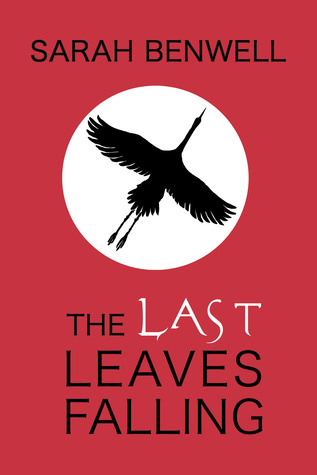The Last Leaves Falling
 The Last Leaves Falling is the story of Abe Sora, a Japanese seventeen-year-old diagnosed with ALS. Over time, the disease causes Sora to lose basic motor functions, such as the use of his legs and arms. Eventually, it will kill him. Sora turns to both the past and the present for comfort, exploring both ancient poetry and teen chat rooms. In doing so, he finds friends who provide him with exactly what he needs: friendship and acceptance without pity.
The Last Leaves Falling is the story of Abe Sora, a Japanese seventeen-year-old diagnosed with ALS. Over time, the disease causes Sora to lose basic motor functions, such as the use of his legs and arms. Eventually, it will kill him. Sora turns to both the past and the present for comfort, exploring both ancient poetry and teen chat rooms. In doing so, he finds friends who provide him with exactly what he needs: friendship and acceptance without pity.
This novel is part of a recent trend in young adult literature of books about terminally ill teenagers. It joins the ranks of such novels as The Fault in Our Stars and Me and Earl and the Dying Girl. The Last Leaves Falling is not, however, just another one of these novels. It’s original and unique. The plot engaged me and made me want to keep reading right until the very end. Benwell uses the evolution of the struggles Sora faces every day (both physical and mental) to build up the tension in the novel. This technique makes the tension feel organic, which makes it all the more compelling to read. The language of the novel is also very vibrant. Benwell incorporates samurai poetry that enhances the descriptions of nature and the emotional depth of certain moments without clashing with the modernity of online chat rooms and the language of modern teenagers.
Benwell does an excellent job of getting inside the mind of a teenager facing a serious illness. She captures the thought processes and psychology of illness well and makes them accessible for a younger audience. She does this without drenching Sora’s character in self-pity, which is difficult to do when your character has an incurable disease. Sora’s emotional history and those of his friends are realistic and multi-dimensional, making it easy to empathize and connect with them.
The only two major flaws with the novel are Sora’s voice as a narrator and the character of his mother. When Sora is speaking in dialogue, he sounds very much like a teenager in the language he uses and in his speech patterns. When he is narrating, however, that teenaged voice often fades and becomes more adult. Whenever this happens, the character seems a little less authentic and we lose some of the impact of whatever he’s saying. Sora’s mother suffers from a similar problem. She’s not fully realized as a character and she often seems quite flat. She’s either angry or sympathetic or almost neutral. She becomes a little more emotionally developed near the end of the novel, but she plays a fairly significant role throughout, so it would have been better for her to be fleshed out earlier on.
Overall, this is well-crafted and engaging piece of young adult fiction. It is well worth the time it takes to read it and I highly recommend you check it out.